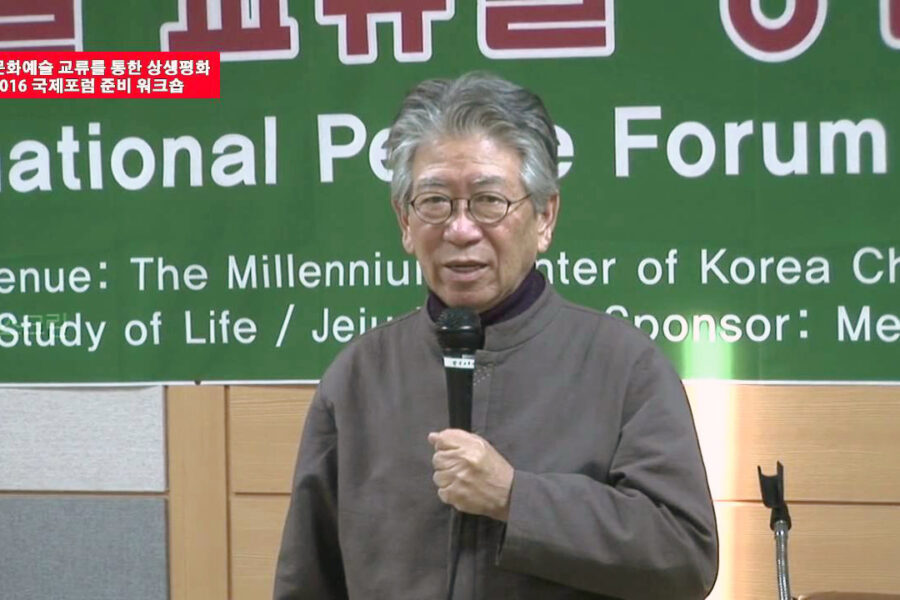A doyen Asian ecumenist Prof. Dr Kim Yong-Bock passes away

Prof. Dr Kim Yong-Bock, doyen of Asian ecumenism and prominent theologian, passed away in the afternoon of 7 April 2022 in Seoul, Korea. He was 84 years old.
Born in Cholla province in 1938, Kim Yong-Bock had been actively involved in the Asian and global ecumenical movement in various capacities. Dr Yong-Bock was President of Hanil University and Theological Seminary in Chonbuk, Korea from 1992-1999.
As far back as the early Seventies, after finishing his study of theology in the USA, Dr Kim worked as a consultant for the Urban Rural Mission (URM) programme of CCA, based in Tokyo, Japan. He set up CCA’s center of Documentation for Action Groups in Asia (DAGA) and oversaw a URM research project on the role of transnational corporations in Asia; Ever since then, Kim had been active in the Asian ecumenical movement.
Expressing condolences on the passing away of Dr Kim Yong-Bock, Dr Mathews George Chunakara, General Secretary of the Christian Conference of Asia (CCA), stated that Dr Kim Yong-Bock was an ecumenical guru who inspired and motivated many Asians to take Christian faith and witness seriously in emerging socio-political contexts. He was a pioneer in developing and popularising the “Minjung theology” as early as in the 1970s through CCA platforms.
Dr Mathews George Chunakara recalled that Dr Yong-Bock Kim was instrumental in motivating generations of young Asians, articulating and pursuing a vision of a political theology. He consistently pointed out that Christ’s suffering was more than just spiritual suffering; the suffering of the Messiah must be understood politically and historically in the Asian context.
“It was in such a context that Prof. Yong-Bock articulated that the minjung in Korea suffered under the unjust political-religious-social power of the rulers,” added Dr Chunakara.
Dr Kim received his Master of Divinity and Ph.D. degrees from Princeton University. He has been a teaching fellow at Princeton Theological Seminary, an international consultant to the Commission on Ecumenical Missions and Relations, National Board of Missions of the United Presbyterian Church (USA), and was Founder and Director of the Christian Centre for Asian Studies, and Director of the Doctor of Ministries Studies, a joint programme with San Francisco Theological Seminary. He was also President of the Asia Pacific Graduate School for the Study of Life and Peace, Seoul, Korea and editor of Madang, Journal of Contextual Theology in Northeast Asia.
He lectured at various universities, institutions and seminaries in the USA and Asia. Besides academic activities, he had been actively involved in various other areas, especially in relation to studies on peace, development, ecological, and economic justice.
Dr Kim Yong-Bock served as a member of CCA’s Commission on Theological Concern (CTC) from 1976-1981. Together with Dr Feliciano V. Carino, he took the leadership in initiating and founding the Congress of Asian Theologians (CATS) under the auspices of CCA, and organized the first CATS summit in Seoul, Korea in 1997. He was elected a co-moderator of CATS from 1997 to 1999. He was also involved in WCC-URM and in the World Association of Reformed Churches (WARC) for decades.










